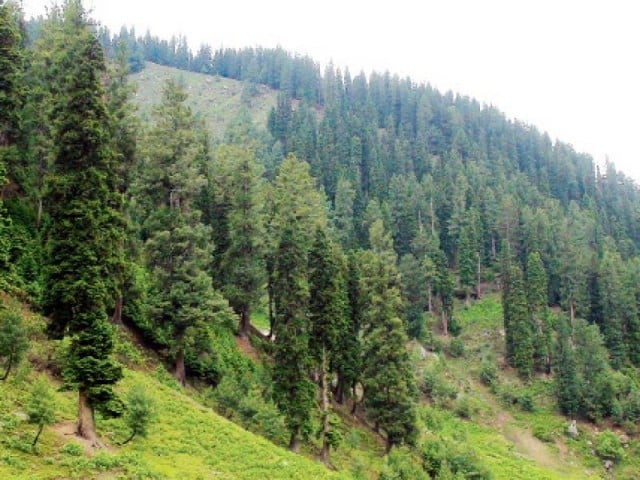WWF calls for green energy and water conservation
Says urban flooding has damaged infrastructure in parts of the province

Recent urban flooding in parts of Islamabad and torrential waters in Kachho, Sindh, have damaged infrastructure, the economy, agriculture and have led to livestock mortality, said WWF Director General Hammad Naqi Khan.
"At the same time, climate change is adversely impacting the leather and textile sectors which contribute significantly to the gross domestic product (GDP) of Pakistan," Khan said. He continued that livelihoods of livestock herders and cotton farmers have been seriously affected due to the unavailability of freshwater, changes in temperature and rainfall patterns in the last two decades.
He shared that despite the fact that we have an agrarian economy, the agriculture sector does not get the attention it deserves in terms of technological improvement and better management practices.
Khan pointed out that struggle with seed suitability and often, when in need water for cotton crops, they do not get it on time or in the required volume. "Consequently, they suffer the most due to changes in climate."
It is reported that the textile and leather sectors support more than 15 million families in Pakistan and are key drivers to Pakistan's economy. Leather and textile industries exhibit a potentially resource-intensive process with freshwater use, discharge of wastewater and effluents posing a serious threat to the environment and habitats.
However, these industries could adopt alternative energy options and better water management strategies to reduce their carbon footprint and improve their production. WWF-Pakistan believes that both sectors possess significant potential for conserving environmental resources.
Read More: Khuhro questions IRSA's silence on 'theft' of 30,000 cusecs water
To reduce the use of freshwater and hazardous chemicals and support industries in sustainable production, WWF-Pakistan, in collaboration with the International Labour Organization (ILO), is implementing a project called International Labour and Environmental Standards Application in Pakistan's SMEs (ILES).
The project focuses on promoting sustainable production and plans to mobilize and build the capacity of more than 500 textile and leather industries in Pakistan. This six-year project, funded by the European Union (EU), is being implemented in Karachi, Lahore, Sialkot and Faisalabad.
Sharing his thoughts, ILES Senior Manager and WWF-Pakistan Freshwater Programme Head Sohail Ali Naqvi said that textile and leather industries in Pakistan have broad prospects for improved environmental compliance which can leverage the economic benefits of the European Union's Generalized Scheme of Preferences (GSP+).
After four years of auditing industries in the two sectors, the ILES project has now developed a business case for environmental compliance as well as other project successes including water replenishment initiatives (recharge wells) and nature-based solutions (floating treatment wetlands).
These will provide a plethora of benefits such as reducing environmental and supply-chain risks, driving internal innovation and reshaping future industry trends. He added that they are actively disseminating the business case in the small and medium industries (SMEs) to encourage sustainable consumption and production practices.
To shift industries to sustainable production, WWF-Pakistan's ILES project has built the capacity of 250 professionals on smart environmental management practices. As a result, a total of 21 SMEs (16 textile and 5 leather SMEs) have reduced their annual emissions by 23,967 tonnes of CO2 and saved 4,447,804 kWh energy, as well as 679,456 m3 of freshwater.
Published in The Express Tribune, August 5th, 2021.



















COMMENTS
Comments are moderated and generally will be posted if they are on-topic and not abusive.
For more information, please see our Comments FAQ